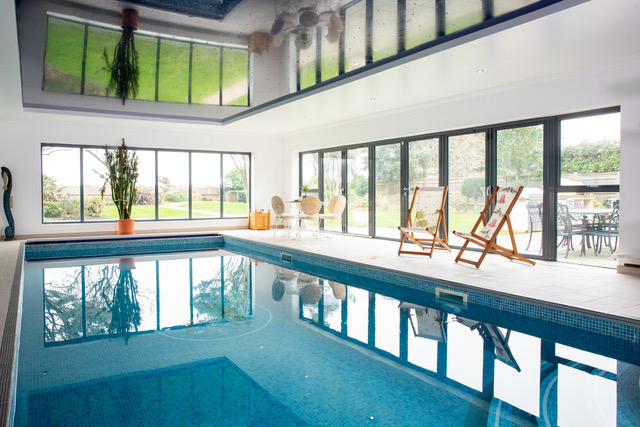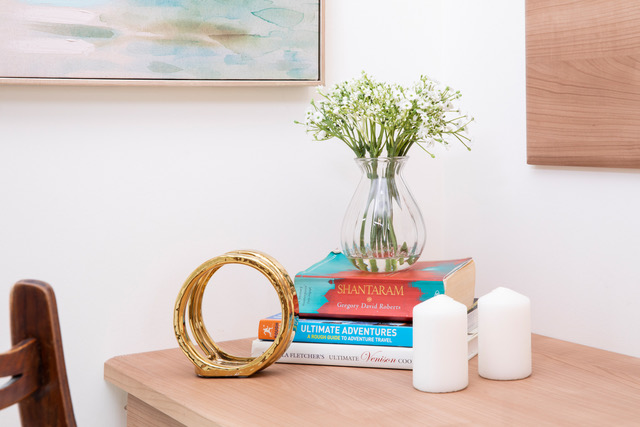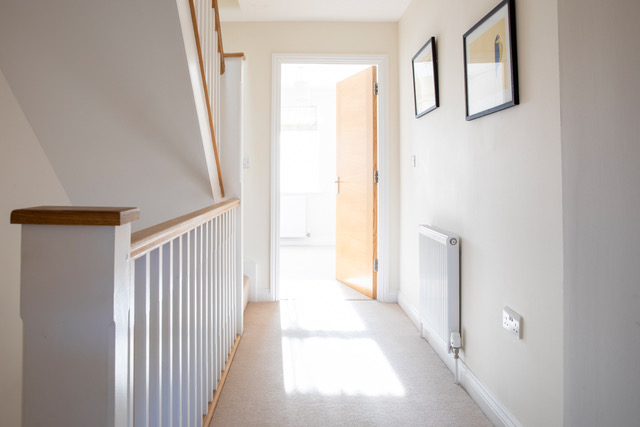
How Do You Manage a Holiday Let?
There are a few reasons why you may decide to purchase and start a holiday let. Perhaps it is a second home for you to enjoy with your friends and family, perhaps it was purchased as an investment project, or maybe you want to shift gears and transfer your long term rental into a holiday let. Whatever your reason for having a holiday let, there are some things you should consider before buying and renting it out.
Picking a Location for Your Holiday Let
If you are unfamiliar with the area when choosing a holiday let property, it is best to get some advice. Your local estate agent should be able to give you some valuable insights into the area, and what areas are more appropriate for holiday guests. Usually, an estate agent will have some links with a local property management company who has valuable insight into the potential return on your investment, and occupancy rates in the locality. At Simple Getaway, we are able to provide some key data regarding what areas are more profitable, and highlight your competition so you know ahead of time, what you are up against.
Picking a House Format
You want to pick a property that is right for you, but if you are looking for your property to be top of the list for holiday guests to choose, you should consider the house format. Think of the search criteria that guests may use to choose an appropriate rental. They could filter by detached, terrace, apartment, they will search by number of guests, and also by bedroom/bathroom ratio. If you can, we would recommend choosing a good bedroom to bathroom ratio. Guests groups vary, but more often than not, guests are not from the same family and like to have their separate space. Choosing a holiday let with an equal or close to equal bedroom to bathroom ratio would be preferable.
Focus on the Important Things
When you are searching for your own home, you may be looking for things like storage, large bedroom spaces or walk in wardrobes. However, when searching for a holiday let, these things aren’t as important. Guests will want to make sure the bedrooms are clean, comfy and functional, but will usually be looking to make sure the communal areas would work for the group. Particularly with larger groups, you’ll want to make sure there is plenty of space available in the living, dining and kitchen areas so that guests can enjoy the space with their group.
Furnishing Your Holiday Let
Once you have decided on the right property, it’s time to work on the interior furnishings. At Simple Getaway, we are qualified in interior design and can be available to give our homeowners tips on what works best for a holiday let. What is most important is to make sure things will photograph well. Looking for clean, sharp lines and texture will be important to consider. We suggest white linens and towels, giving the sense of a clean space for guests, and adding colour by using artwork, cushions or decorative items.
All too often, holiday let homes can be quite sparse, with lots of plain white furniture. You want your guests to feel comfortable in your space and enable them to imagine themselves staying there. Add some greenery to give some life into the space, artwork on the walls for colour, and lamps for some interest and variation in lighting.
Holiday Let Gas Safety
Much like long term rentals, there are safety requirements to renting a holiday let. As a holiday let owner, you are legally required to obtain a gas safety certificate by a gas safe registered engineer. They will assess any gas appliances in your property and make sure they are safe. Usually these cost between £75 – £150 depending upon the amount of gas appliances in your home. At Simple Getaway, we are able to give you the contact details of our gas safety experts. This has to be done on an annual basis so make sure you keep that in your diary!
Electrical Safety
Whilst you are not required legally to obtain an electrical safety certificate, as the holiday let owner, you are required to make sure your electrical items are safe and not hazardous to guests. We recommend that you have an electrical safety certificate completed for peace of mind that all items in your property are safe for guests and make sure checks are undertaken every couple of years.
Fire Safety
Fire safety checks should be performed on your holiday let prior to renting to guests. You can complete this yourself, though we do recommend that you hire a professional the first time to make sure everything is addressed. Legally, you are required to have a smoke alarm on each floor of the property and make sure these are maintained. We highly recommend installing a fire extinguisher and fire blanket in case of emergencies. A fire exit plan is also a good idea.
Carbon Monoxide Detectors
Carbon monoxide detectors are required in each room that has a fossil fuel burning device. We recommend installing a carbon monoxide detector in each room (living room, kitchen, bedroom, dining room) to make sure no issues arise. They cost around £10 each so are well worth the precaution.
Do You Need a License for a Holiday Let?
We are often asked, ‘do you need a license for a holiday let?’. Whilst there is no particular license required of a holiday let owner, it is important to take into consideration the legal requirements for safety laid out above. As regulations change, there may be a requirement in the future to have a license, however, at this time, there is no specific requirement for a holiday let landlord.
When it comes to TV licenses, you do have to apply. When guests travel to your property, they are not covered by their home TV license. Therefore, if you are supplying a TV in your property with live TV, you must get a hotel TV license which is around £150. If you only offer a Netflix streaming service on your TV, you do not need a TV license.
Furnished Holiday Let and Business Rates
If you set up a holiday let, there can be tax advantages. We outlined some of these in our previous blog:
Long Term Vs Short Term Rentals
Essentially, if you set up your property as a furnished holiday let, you can offset some of your initial furnishing expenses and ongoing maintenance and utility bills. However, there are some requirements to be met in order to be considered a furnished holiday let such as making your holiday let available for 210 days of the year, and renting it out for a minimum of 105 days in the year.
Picking a Property Manager
If you want to use a management service to rent your holiday let then you will try to find the best holiday letting company in your area. There are things to consider when choosing the best holiday letting company for your specific needs. To understand some of the benefits of using a holiday letting company, have a look at our last blog:
Benefits of Using a Holiday Home Management Company
There are a lot of holiday letting companies to choose from, so it is important to do your research and ask the right questions. For some guidance questions, have a look at the following blog:


